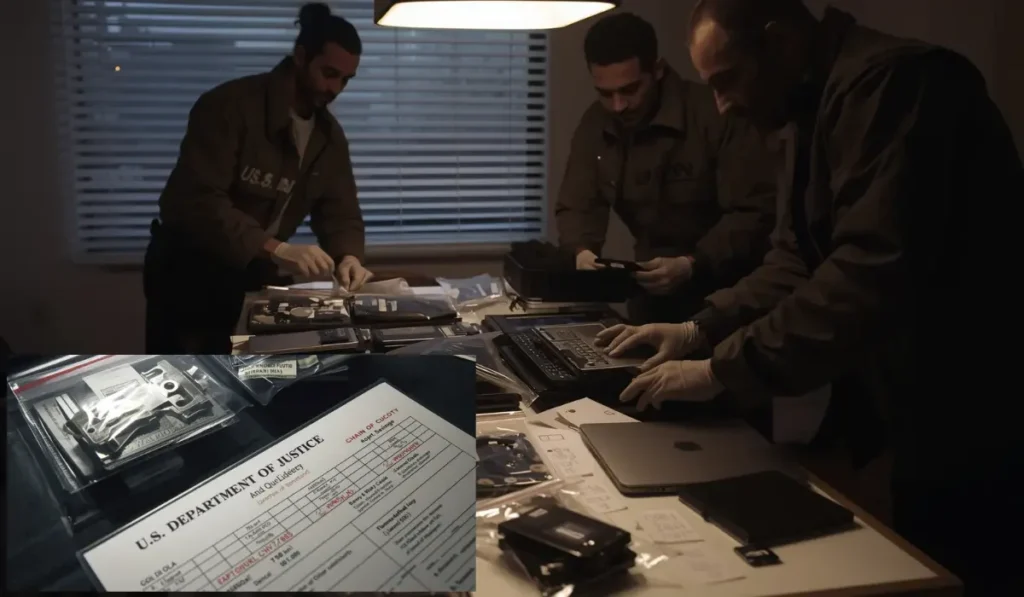While cryptocurrencies have many use cases due to their decentralized nature, this very feature is also misused by fraudsters for cases such as money laundering, illicit drug trafficking, and terrorist financing. There are international policies to prevent these illicit activities, and national governments seize and forfeit digital currencies involved in crime.
In this article, you will read in detail about the seizure of digital currencies and how they are used.
What are Seized Cryptocurrencies?
Seized or forfeited cryptocurrencies are those currencies that legal or regulatory authorities have taken control of because they were used for criminal activities such as terrorist financing, drug trafficking, or money laundering.
Seizure or forfeiture of cryptocurrencies is done step by step. Whenever the concerned legal authority suspects a criminal activity involving cryptocurrencies, they seek a seizure warrant from a concerned court.
Seizures are not done by a single entity, but several government departments and agencies work together to achieve this effect. The currencies are permanently forfeited after the legal authorities and crypto holders contest the case in a court of law.
How does the Government Seize Bitcoin?

Bitcoin can be easily seized by the government authorities only if they get access to the private keys. To access private keys, the authorities issue a warrant to the key holders who are involved in fraud. Usually, search warrants are issued to the exchanges through which illegal transactions have taken place. The warrant consists of the address associated with the Bitcoin to be seized and the reasons for seizure.
Another method of seizing Bitcoin is called criminal forfeiture. Here, the authorities get permanent ownership of Bitcoin through a court order. While there is a possibility that seized coins can be given back if the holders are proven innocent, forfeited currencies will permanently be the property of the authorities.
How are Seized Cryptocurrencies Handled?
The cryptocurrencies seized are handled in several ways. Soon after seizure, that is, after the lawful authorities have taken control of digital assets after an investigation, they freeze these assets to prevent further transactions without physically removing the asset from the blockchain. Further, these assets will be moved to a government-controlled wallet.
After seizing the assets, the government authorities take permanent ownership of these assets. This is called forfeiture. In many instances, Bitcoin seized by the U.S. government has been forfeited. After the legal proceedings are over, these assets are auctioned off by the government. In every fraud, there are ordinary people who lose their savings.
In such cases, the governments may sometimes issue new tokens equivalent to the seized amount to return funds to victims as part of a restitution process.
Can Governments Freeze Crypto Wallets?
Yes, governments can seize cryptocurrencies if they suspect that the currencies are being used for unlawful means. This is done through issuing a court order or through civil forfeiture. Here is more about how governments freeze crypto wallets.
The governments adopt civil and legal procedures to freeze crypto wallets. They issue warrants or seek court orders to initiate freezing processes. The governments seek the assistance of virtual asset service providers (VASPs), such as cryptocurrency exchanges, to identify and freeze accounts involved in criminal activities.
Stablecoin issuers like Tether and Circle are technically equipped to identify and freeze selected accounts at the request of governments. Since terrorism is an international issue, countering terrorism financing is done by all countries together. Different national governments collaborate and use advanced blockchain analytics tools to identify and freeze accounts contributing to illegal activities.
Given this, there are some limitations faced by governments in freezing crypto wallets. It is difficult for governments to freeze decentralized, self-custody wallets. This is because there is only a limited scope for governments to access these wallets. Since they are decentralized, a centralized authority cannot trace the transactions. While governments have the authority to freeze the accounts, it is practically difficult in several cases due to a lack of technical know-how to trace decentralized assets.
Policy Considerations for Governments Regarding Seizing Cryptocurrency
Digital crimes and their methods of execution are evolving. No matter how foolproof the system is, hackers find a way to navigate it. Therefore, it is important that governments update their policies to meet the changing requirements. It is much needed for the fairness, transparency, and efficiency of the system.
The accused should be given a fair chance to contest their case in court. This is because in a large scam, there can be actors who get unknowingly involved, without understanding the consequences. As part of victim restitution, the governments should make sure that innocent owners and legitimate businesses are not unfairly deprived of their assets.
Transparency in the use of forfeited cryptocurrencies is yet another important consideration. These funds should be used fairly and transparently to fund the activities towards fraud detection. The government should ensure accountability and responsibility in the use of these funds.
Cryptocurrency seizures and forfeitures are issues of international importance, as these currencies are not bound by territory. Therefore, nations should come together to develop policies regarding asset sharing, enhance judicial oversight, and enable victims to claim their share of the funds. There should be an international consensus regarding adopting global standards for digital currency forfeiture.
To counter the security and market risks that the governments may face while holding large amounts of forfeited currencies, they should formulate secure custody solutions, transparent asset management protocols, and independent oversight mechanisms. These measures will increase the public confidence in seizures and forfeitures.
What are the Economic and Social Impacts of Cryptocurrency Seizures?
The regulatory actions aimed at cryptocurrency seizures and forfeitures can cause instability in the market and destroy investors’ confidence in the system. The rules regarding handling the seized crypto assets should be made error-free so that it doesn’t disrupt the market flow.
Governments may use the forfeited money to fund law enforcement against money laundering. The laws should support technological innovation and should not deter the use of blockchain technology for augmenting the scope of a global digital economy.
The Bottom Line
Seizing digital currencies is an important activity to ensure that they are not used for any criminal activities. While it is difficult to trace the private keys of digital currencies as they are decentralized, governments have formulated different policies to do this. They also have strict policies to use the forfeited money, which eliminates any doubts in the minds of people and makes them trust the processes.
A thorough understanding among the common crypto users about what happens to seized cryptocurrencies is important because only then will they have trust in government procedures, and they will fully stay away from fraud.

